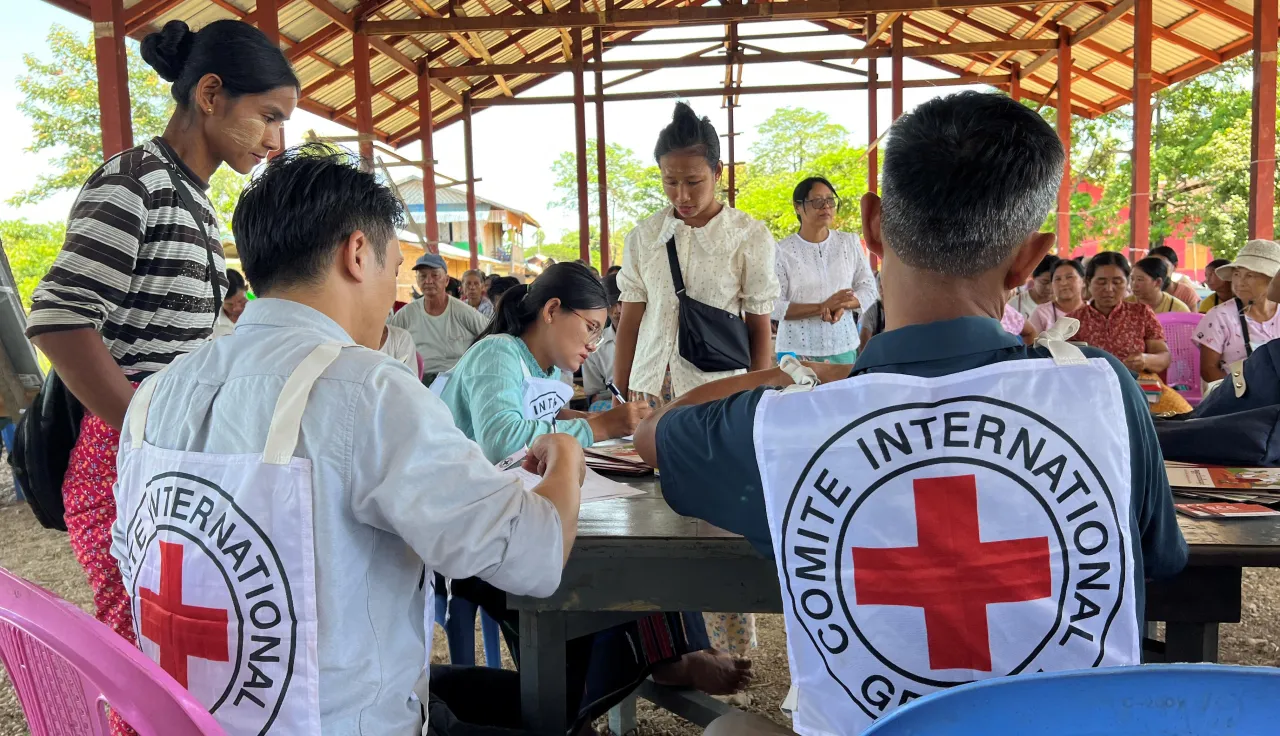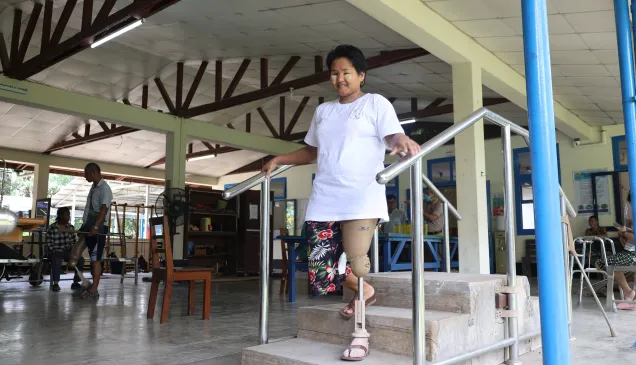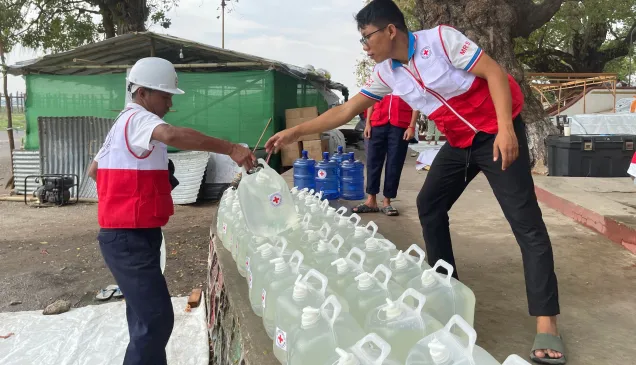With millions of people already displaced by decades of armed conflict before the earthquake, Myanmar is one of the countries most in need of humanitarian assistance in the Asia-Pacific region.
“When my family of five was displaced, we built our tent using different types of wood from the forest. We have faced many crises, including armed conflict and flooding, and now we have again been hit by the earthquake,” said 77-year-old Daw Khin Po, one of the millions of people affected and now displaced in Mandalay.
The International Committee of the Red Cross (ICRC) has been working tirelessly over the past three months with the Myanmar Red Cross Society (MRCS) and other local partners to meet the urgent needs of the most affected communities in Mandalay, Sagaing, Bago and Shan State.
More than 111,000 people have received assistance from the ICRC following the earthquake, including support for safe drinking water, food, tarpaulins, solar streetlights, essential household items, cash to meet urgent needs and access to emergency health care through hospitals and mobile clinics. Among those, over 49,000 people in Mandalay, Sagaing and Shan State have benefited from our activities to improve access to safe water, sanitary facilities and hygiene, helping to rebuild safer living conditions and prevent health risks. The ICRC also continues to provide livelihood opportunities through training, agricultural and livestock materials, and support for small businesses. In parallel, risk awareness sessions are held to help communities stay safe from unexploded ordnance in areas affected by disaster and conflict.
“This cash assistance from the ICRC will be used to repair our damaged tents so that we have a little more privacy and better shelter,” said Daw Khin Po, who received assistance.
With the MRCS and civil society organizations, the ICRC has also supported hospitals and community health centres in Mandalay and Sagaing regions, and Shan State, by providing medical supplies and repairing infrastructure and the water supply system.
However, the scale of needs is beyond what any single organization can address. The March disaster has added another layer of vulnerability to people's lives. Many have lost their possessions and sources of income, making it difficult for them to meet basic needs such as food, medicines and hygiene items amid rising market prices. The imminent monsoon poses an additional challenge, with an increasing risk of waterborne diseases.
“It’s heartbreaking to see people struggling to rebuild their lives after the earthquake. We cannot forget that this has further disrupted the lives of people who are already deeply affected by the ongoing armed conflict. We will stand with them every step of their way to recovery,” said Arnaud de Baecque, the ICRC’s head of delegation in Yangon. “The world cannot look away. The international community must step up their support.”
Even though parties to the conflict have extended a pause in hostilities, fighting continues in several areas. The ICRC urges all parties to fully respect international humanitarian law and allow wider humanitarian access to communities in all affected areas.
ICRC in Myanmar
The ICRC has been active in Myanmar for nearly 40 years, providing assistance to people affected by armed conflict and other situations of violence. Myanmar is the ICRC’s second largest operation in Asia.
About the ICRC
The International Committee of the Red Cross (ICRC) is a neutral, impartial and independent organization with an exclusively humanitarian mandate that stems from the Geneva Conventions of 1949. It helps people around the world affected by armed conflict and other violence, doing everything it can to protect their lives and dignity and to relieve their suffering, often alongside its Red Cross and Red Crescent partners.
For more information, please contact:
Francisco Javier Pavon Molina, ICRC Yangon, email: fpavonmolina@icrc.org
Aye Myat Thu, ICRC Yangon, tel:+959 786709654, email: amyatthu@icrc.org




